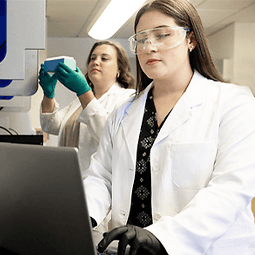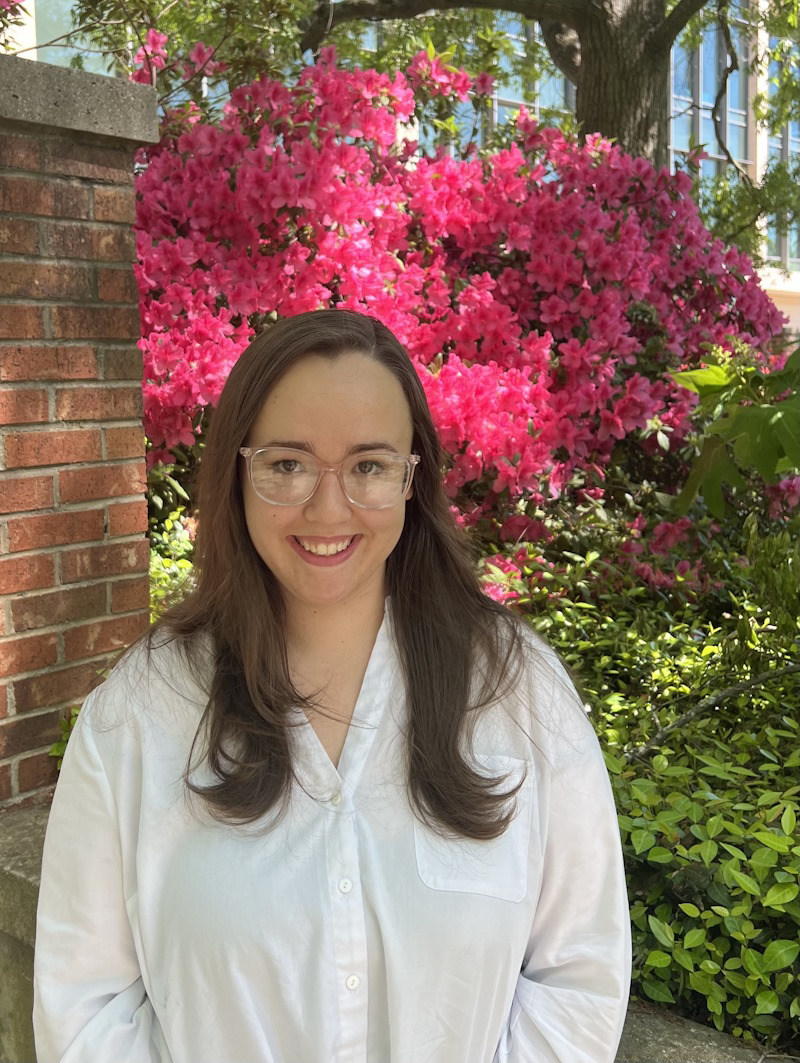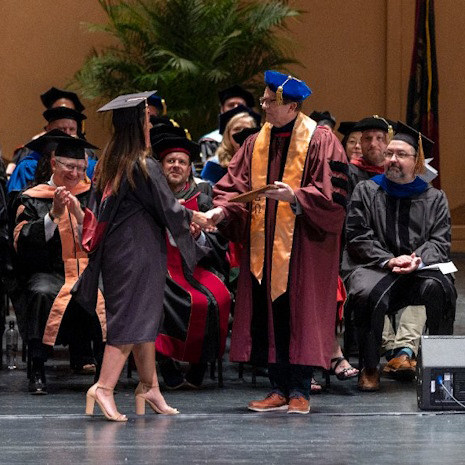
Find Out More
Epidemiologists design and conduct investigations aimed at improving the health of groups of people by combining knowledge from the social sciences, medicine, biology, the environment, and statistics.
May 21, 2024 | Erin Bluvas, bluvase@sc.edu
Born in Oklahoma, Paige Jones moved around before finding her home in Columbia – by far the largest of the seven places she had lived previously. She chose it to be closer to family, who had relocated here while she was an undergrad at the University of Mississippi, but she soon found it was where she wanted to stay for graduate school.

“I have really enjoyed living in Columbia,” she says. “There’s lots to do without being overwhelmingly large, and the student culture has been really great. It has been easy to make friends and connections within the Arnold School, which was something I was a bit worried about moving to a new city, particularly with the effects of COVID.”
Jones originally thought she’d become a therapist but found herself more interested in the research side of her bachelor’s program in psychology. After moving to Columbia, she worked in a USC research lab where an Arnold School alum introduced her to the field of public health as a career.
She enrolled in the M.S. in Epidemiology program, combining her two areas of interest into psychiatric epidemiology as her focus. Jones built on her research experience as a graduate assistant for epidemiology assistant professor Matthew Lohman and clinical associate professor of neuropsychiatry and behavioral science Eve Fields. She gained additional experience as a statistics and research analyst for the South Carolina Department of Health and Environmental Control – exploring the intersection of mental health with maternal and child health.
Jones believes that her coursework and work experiences have prepared her for positions in a research lab, health department or hospital settings. She is also open to pursuing a doctoral degree.
“I think my degree prepared me well for any of these roles,” she says. “I feel very confident in my SAS and overall data analysis skills, which has greatly helped me in my current job with DHEC. I think the opportunity to complete a thesis has further benefitted me in leading a research project and really applying all the data and scientific writing skills from my coursework.”
Her Arnold School mentors played a big role in her program, and she found Lohman as well as biostatistics clinical assistant professor Andrew Ortaglia to be particularly impactful.
“Every professor I have had or worked with has been great, and they truly want you to do well and provide you the knowledge to do that,” Jones says. “I am really grateful for all of Dr. Lohman’s guidance and patience during my thesis, as well being a very effective and kind teacher of complicated epidemiologic methods in class. I am also very grateful for Dr. Ortaglia’s biostatistics courses, and his commitment to teaching good statistics while challenging us to really consider the why behind what methods we use. Both have influenced the way I think about things in work and my commitment to doing meaningful research in any area of epidemiology.”
As she prepares to graduate next month, Jones has advice for future students.
“It’s important to get involved as much as possible – taking opportunities to learn new skills and make connections.”

Epidemiologists design and conduct investigations aimed at improving the health of groups of people by combining knowledge from the social sciences, medicine, biology, the environment, and statistics.

The Arnold School is proud of our 2024 graduates, who will go on to change the world locally and globally. Learn about some of the other outstanding individuals who completed one of our 34 programs this year.